This 1968 Beatles song originally used the name ‘Jules’ in its title as a nod to John Lennon’s son, who struggled through his parents’ divorce—hence its lyric, “Take a sad song and make it better.”
Hey Jude
This film, released in 1968, went on to win Best Picture at the 1969 Oscars. It was also RL's school musical last year.
Oliver!
In 1968, this man won the US Open singles title, becoming the first African-American man to do so in the tennis tournament’s history.
Arthur Ashe
Amidst the nationwide turmoil surrounding the Vietnam War, this president shocked US citizens by announcing in March he would not seek re-election.
Lyndon B. Johnson
His pop-art works in the 1960’s, most notably his canvases featuring Campbell’s Soup cans and Marilyn Monroe, challenged the traditions of fine art.
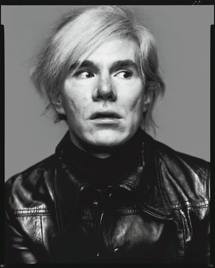
Andy Warhol
This "Queen of Soul," who died only two months ago, came out with her album “Lady Soul” in 1968.
Aretha Franklin
Jordan Peele claims the 1968 horror film “Night of the Living Dead” had a major influence on this 2017 horror film of his.
Get Out
The 1968 Summer Olympics, perhaps most famous for the Black Power salutes of American sprinters Tommie Smith and John Carlos, took place in this world capital.
Mexico City
After winning the crucial California primary, this junior senator from NY and presidential hopeful was assassinated at the Ambassador Hotel in Los Angeles, California.
Robert F. Kennedy
This musician, ranked by Rolling Stone as the greatest guitarist of all time, came out with his third studio album Electric Ladyland in 1968.
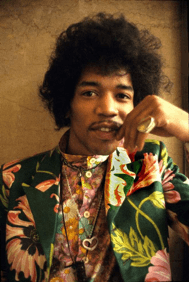
Jimi Hendrix
This English rock band, famous for its later hits “Stairway to Heaven” and “Whole Lotta Love” formed in 1968 under the name New Yardbirds.
Led Zeppelin
The top grossing film of 1968 was this trippy, sci-fi epic directed by Stanley Kubrick, which centers on an astronaut battling his malfunctioning supercomputer, HAL.
2001: A Space Odyssey
This coach, who led the Green Bay Packers to victories in Super Bowl I and II in 1967 and 1968, now lends the Super Bowl trophy its name.
Vince Lombardi
This city hosted the 1968 Democratic National Convention, and was site of much civil unrest and police brutality.
Chicago, IL
This star of the 1968 musical film Funny Girl is the only recording artist with a number-one album in each of the past six decades.
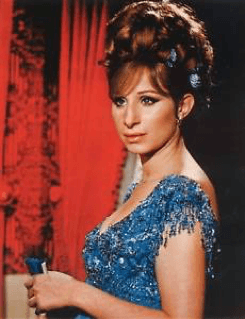
Barbara Streisand
This 1968 Simon and Garfunkel song was originally titled “Mrs. Roosevelt” before it was changed to be in the film “The Graduate.”
Mrs. Robinson
Paramount Pictures came out with a 1968 film version of this play by Shakespeare, which contains the famous line, “Thus with a kiss, I die.”
Romeo & Juliet
This Boston Celtic was the only player in basketball history to win the NBA championship as a player-coach, doing so in both 1968 and 1969.
Bill Russell
Richard Nixon ran on promising to be “this” kind of president, a label which would later become the title of a twenty-season NBC crime drama set in New York City.
Law and Order
This former vice president ultimately became the 1968 democratic nominee for president, but ultimately lost to Richard Nixon.
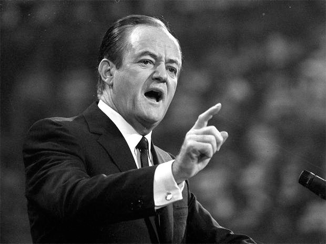
Hubert Humphrey
This iconic music label, which had its roots in Detroit, launched the careers of countless Black performers such as Marvin Gaye, The Supremes, and The Temptations.
Motown Records
This famous French film festival, known for awarding the Palme d’Or, was cancelled in 1968 due to massive strikes and widespread student protests.
Cannes Film Festival
Wimbledon was won by this woman in 1968, who five years later would take down tennis hustler Bobby Riggs in an infamous match known as “The Battle of the Sexes.”
Billie Jean King
This election was the first after the passage of this 1965 bill, which prohibits racial discrimination against voters.
Voting Rights Act
In 1968, she became the first black woman to be elected to the U.S. Congress. Four years later, she became the first black candidate for a major party’s nomination for the Presidency.
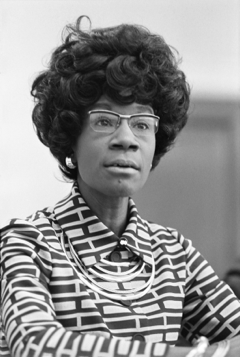
Shirley Chisholm